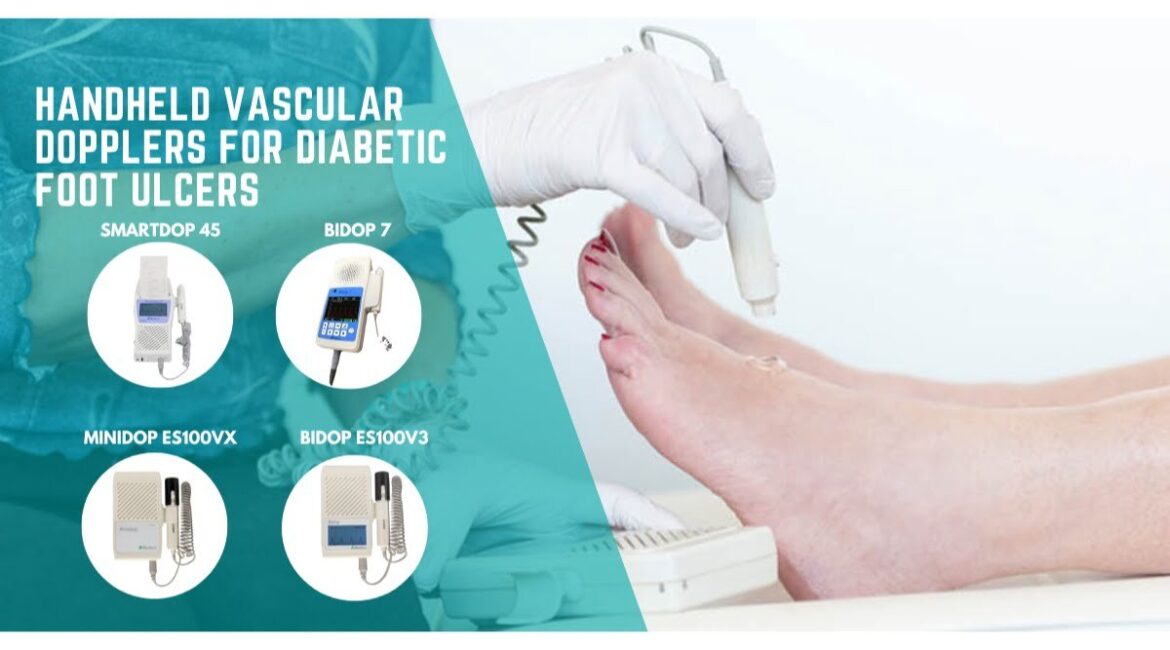Chennai (Tamil Nadu) [India] September 24: Diabetic foot ulcers are a common complication of diabetes, resulting from prolonged high blood glucose levels that damage nerves and blood vessels. The condition, known as diabetic vasculopathy, compromises blood circulation, leading to various foot problems. When blood circulation is altered, and nerve damage occurs, the feet can become numb or tingly, a condition called diabetic neuropathy.
Early diagnosis of these conditions is crucial to prevent severe complications, and this is where handheld vascular Doppler comes into play. These devices offer a non-invasive, efficient way to assess blood flow in the lower
extremities, providing critical information that can aid in the early detection and management of diabetic foot ulcers.
Here’s how handheld vascular Dopplers enhance the diagnosis and care of diabetic foot ulcers:
1. Early Detection of Circulatory Problems
-
Ankle-Brachial Index (ABI) Testing: Handheld vascular Dopplers can be used to perform ABI tests, which compare the blood pressure in the ankle and arm. A lower blood pressure in the ankle compared to the arm indicates reduced blood flow, signaling potential vascular issues.
-
Pulse Detection: These devices allow healthcare professionals to feel the pulses in the foot and ankle, which is essential for detecting reduced blood flow. Early identification of circulatory problems helps in planning appropriate treatment strategies.
2. Accurate Assessment of Blood Flow
-
Real-Time Monitoring: The handheld Dopplers provide real-time data on blood flow, enabling accurate assessment of the severity of circulation issues. This precision is vital for tailoring interventions that can prevent the worsening of foot ulcers.
-
Improved Diagnostic Accuracy: By delivering precise measurements, vascular Dopplers reduce the chances of misdiagnosis. Accurate diagnosis ensures that patients receive the most effective treatment for their specific condition.
3. Non-Invasive and Patient-Friendly
-
Ease of Use: The handheld design of these Dopplers makes them easy to use, even in a busy clinical setting. They are portable and can be used at the bedside, in outpatient clinics, or during home visits.
-
Patient Comfort: As a non-invasive tool, vascular Dopplers cause no discomfort to patients. This is particularly important for individuals with diabetic neuropathy, who may already be experiencing pain or sensitivity in their feet.
4. Enhanced Patient Outcomes
-
Preventing Complications: By facilitating early and accurate diagnosis, handheld Dopplers play a crucial role in preventing complications associated with diabetic foot ulcers. Timely intervention can significantly reduce the risk of infection, amputation, and other severe outcomes.
-
Cost-Effective Care: Early detection and management of diabetic foot ulcers can lead to cost savings by preventing the need for more extensive, expensive treatments later on. Handheld Dopplers contribute to more efficient healthcare delivery.
5. Wide Accessibility and Affordability
-
Affordable Solutions: The range of vascular Dopplers offered at discounted rates makes these devices accessible to a broader audience, ensuring that more patients benefit from advanced diagnostic care.
-
Support for Healthcare Providers: By offering these Dopplers at a reduced cost, healthcare providers can enhance their diagnostic capabilities without straining their budgets. This accessibility ensures that more patients receive the care they need.
In conclusion, handheld vascular Dopplers are a valuable tool in the early diagnosis and management of diabetic foot ulcers. By providing accurate, real-time assessments of blood flow, these devices empower healthcare providers to make informed decisions that can prevent severe complications and improve patient outcomes.
Source Link: https://kodymedical.com/2024/08/20/how-handheld-vascular-dopplers-improve-diabetic-foot-ulcer-diagnosis/
Disclaimer:The article is for general information purposes only and should not be construed as professional medical advice. Always consult your doctor before taking any step.

